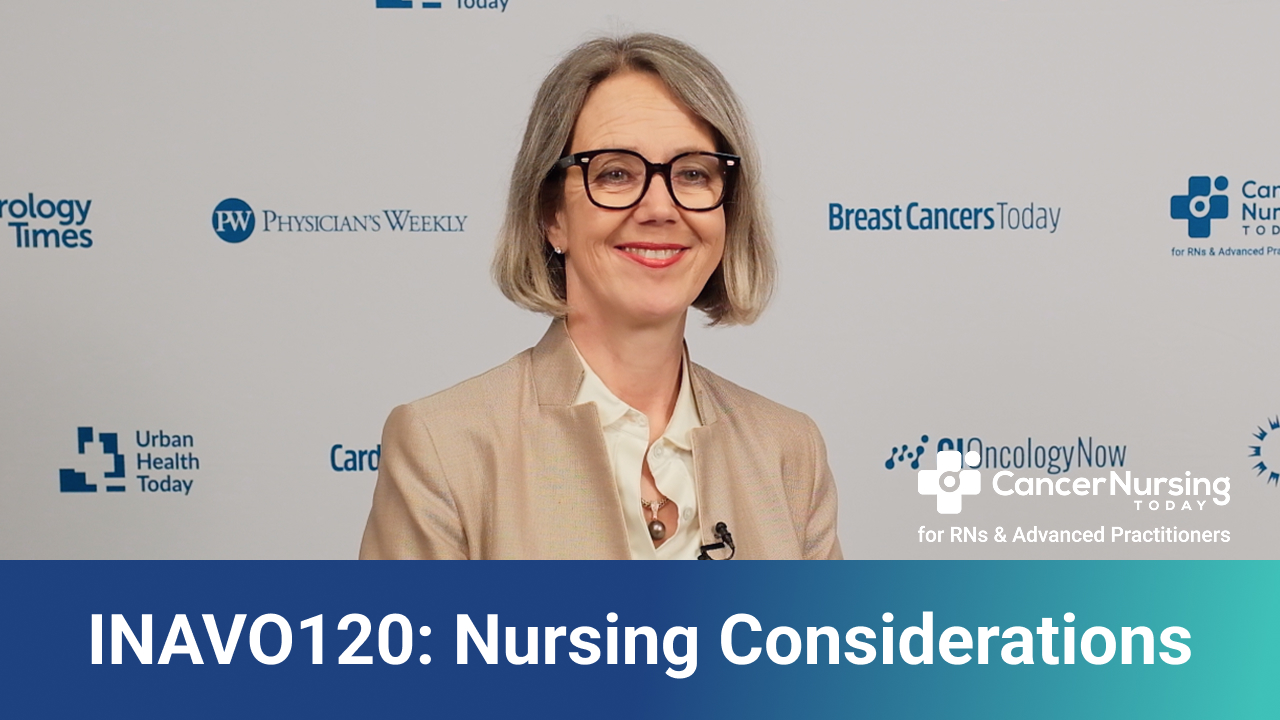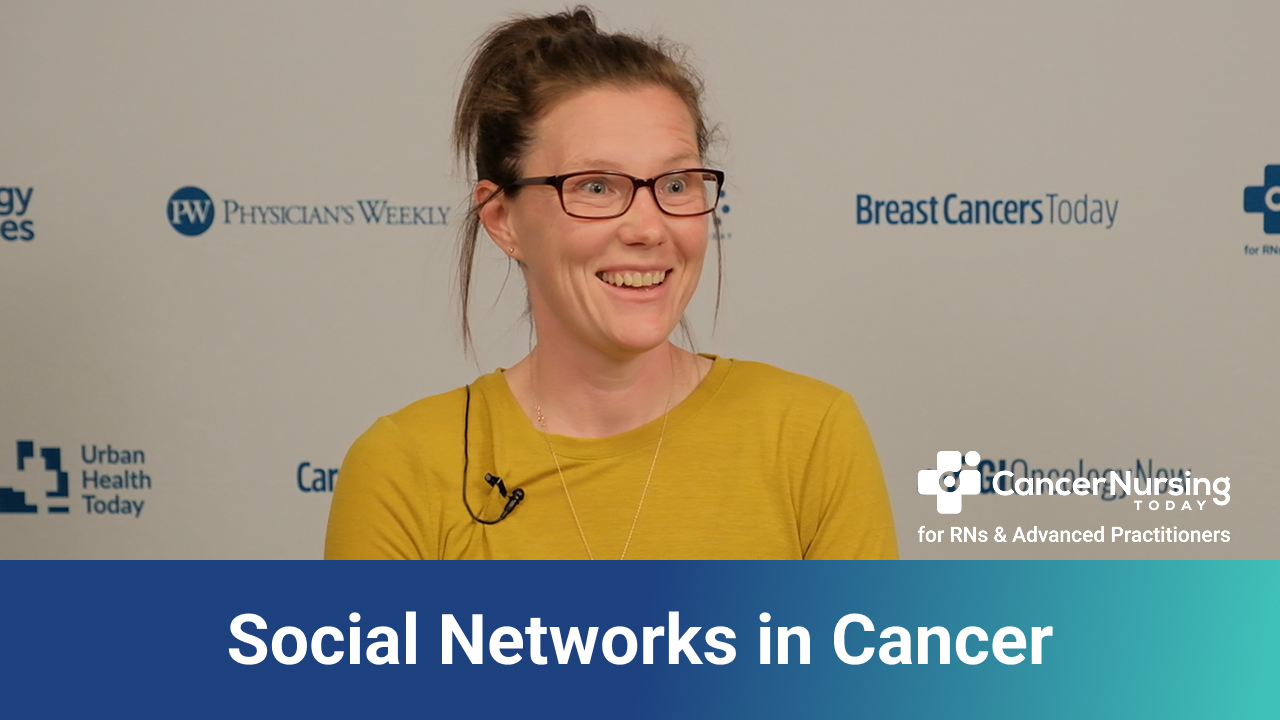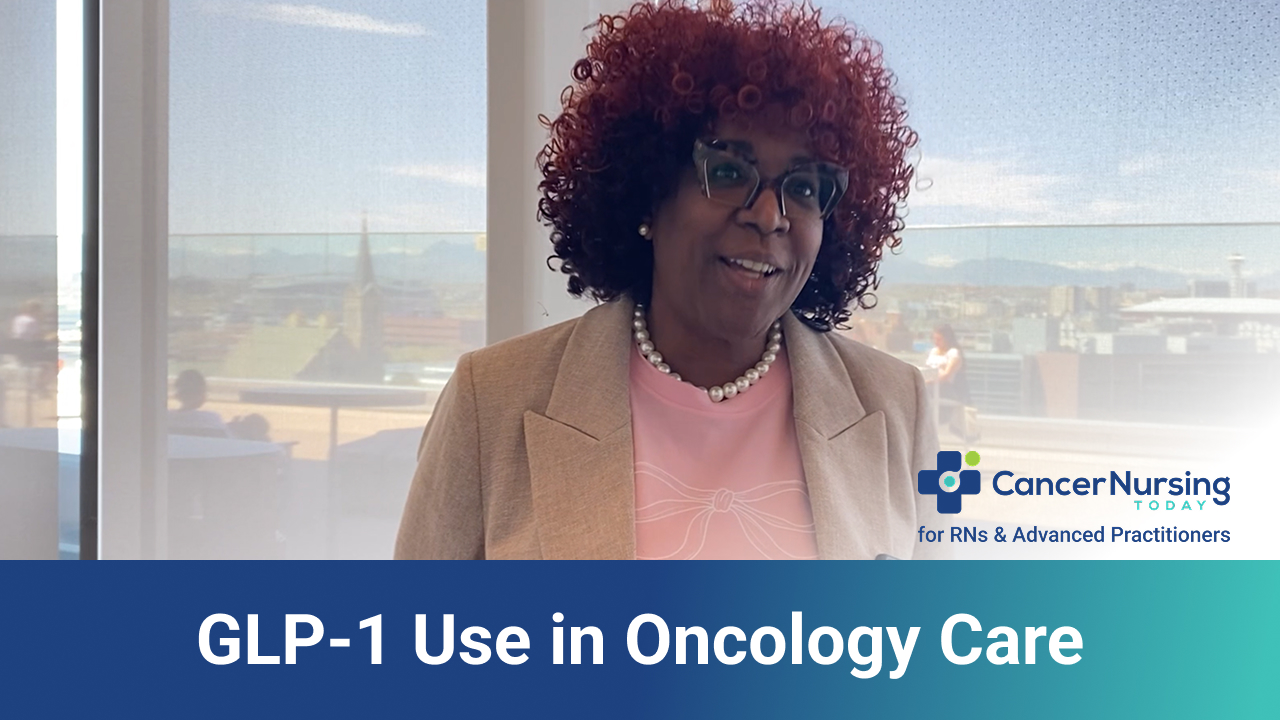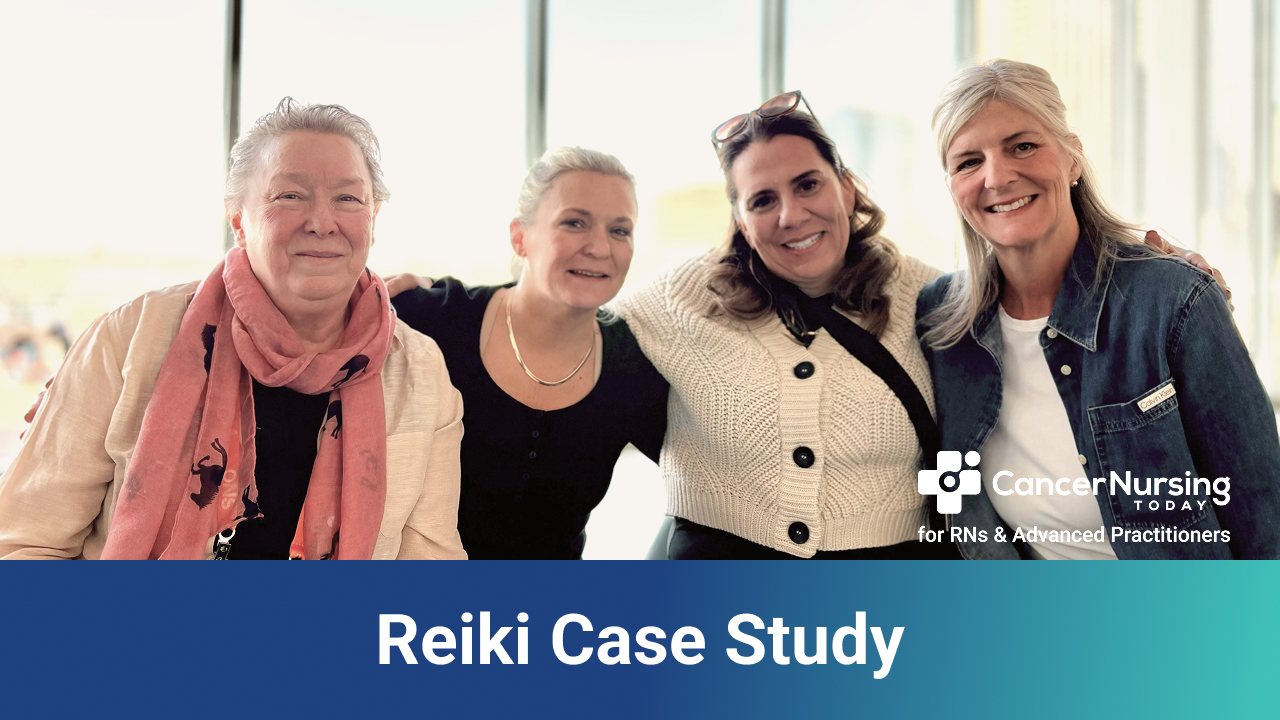Treatment
Advertisement
Given the nuanced nature of ER-low disease, nurses should provide clear, evidence-based education about the role of ET.
A new study highlights the critical role of nurses in cost-effectiveness and resource management.
A recent study suggests that precision medicine programs may be able to target differences in gut microbiota.
Increased travel time and rural residence were each associated with lower odds of receiving certain types of treatment.
Early referral to a fertility specialist and individualized care plans can help patients navigate their options.
The analysis, presented at ASCO 2025, evaluated patient-reported outcomes and collected data on patient quality of life.
Dr. Loibl discusses the importance of involving nurses in breast cancer treatment to mitigate medication side effects.
Chronic GVHD can increase the risk of infections, graft failure, and multi-organ dysfunction in patients.
Nurses should be aware of this issue and work with environmental services and nursing leadership to ensure proper cleaning.
Dr. Darabos highlighted that a lack of social support in patients with cancer is associated with adverse health outcomes.
Researchers evaluated whether TKIs increase the risk of hernias or hernia complications due to their impact on wound healing.
Veronica Brady, PhD, FNP-BC, discusses the effect of GLP-1 agonist use in patients undergoing treatment for cancer.
How Can Nurse-Driven Communications Improve Patient Access to Radiation Treatment for Breast Cancer?
The presentation highlighted the importance of improving time to radiation treatment for patients with breast cancer.These ONNs go beyond traditional roles to facilitate multidisciplinary care and collaboration through digital platforms.
The team presented their implementation process for nadofaragene firadenove at the 50th Annual ONS Congress.
The Nursing Equity Assessment Tool can help nurses systematically and efficiently screen patients for complex care needs.
Nurses can help couples communicate by identifying barriers to disclosure and offering a personalized approach.
A nursing team from Tufts Medical Center discusses their case presentation on the use of Reiki in a patient with cGVHD.
Concerns about recurrence and the development of second primary breast cancers are particularly pressing in these patients.
New research shows why it's essential for oncology nurses to understand evolving axillary management practices.





















 © 2025 Mashup Media, LLC, a Formedics Property. All Rights Reserved.
© 2025 Mashup Media, LLC, a Formedics Property. All Rights Reserved.